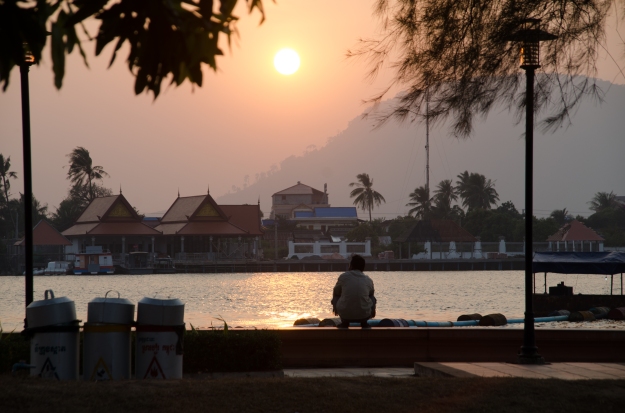Dan and I left our loving Ozzie family behind about a month ago and are now in Cambodia where our journey continuous. It is and has been a journey for the both of us. Dan is equally facing challenges, is learning and growing. Also in our relationship, we face challenges, we learn and we grow.
Photography by Daniel Cordell
A change of scene and society…..
When we arrived in Phnom Penh somehow it was a bit of a culture shock after being in Australia for over a month. We were tourists again and that includes being asked every 5 minutes if you want a Tuk Tuk ride somehere, or if you want to book a tour to see the temples or book a trip to the killing fields. Also the overall contrast with Australia was so big that I felt somewhat confused all day. It felt like a relief arriving in the small town of Kampot. A place that has not yet lost its townish charm due to tourism overload. In the four weeks we’ve been in Cambodia, we’ve got to know the place and some of its people a little bit more and got into our routines. Life is fairly easy here , from the perspective of a foreigner who’s here temporary. Kampot has a peaceful atmosphere, the people are very friendly, the kids are very lively and a lot of them say hello and wave to you when you pass by on your scooter or push bike. A lot of people find themselves extending their stay here. We are staying at a beautiful place (Eden Eco village) close to the river with our bungalow right on the riverside. But of course we did not come here to just relax, eat good food and swim in the river: we came to work!
Opportunities to learn and grow
Dan is helping out at the Eden Eco Village with all sorts of practical stuff that needs to be done: putting up a fence, making signs, adjusting coconut shower heads (pretty cool btw!) etc. together , with S. a young guy from the local village. In the meanwhile whilst working with Dan, S. can practice his English. Dan has been self-employed for almost all his working life. Working alongside and under someone is therefor a bit foreign to him. Cultural differences and the language barrier add to mix of challenges. These new dynamics push his boundaries and give him new experiences.
I’ve started an AI process at Banteay Srey Women’s Spa: a women only spa that offers young Cambodian women an opportunity to develop themselves (spa training, life skills, personal development) and giving them better life-chances. The current situation at Banteay Srey creates an opportunity for change and development. The founder and owner of Banteay Srey took this opportunity to get everybody on board the Banteay Srey learning journey and the staff to be actively involved and engaged in the whole operations of the spa.
Again it’s an amazing opportunity for myself to learn as well. Talking to the founder and owner of Banteay Srey I realised I could have made things a lot easier for myself by starting applying AI in Holland. I doubt though if I would have learned as much as I already have now. One of the challenges of facilitating in a developing country is getting abstract concepts across. Concepts that are very much woven into our day to day life. People here people don’t have the luxury to think about abstract concepts and higher goals in life on a regular basis. Maslow’s pyramid is finally really making sense now. English not being the native tongue of all the people involved (including me) also pushes the boundaries of my creativity in using all sorts of words to describe things.
What brings life
Of course also Cambodian culture, beliefs and values, customs and traditions are very different. I am especially curious how these cultural differences influence the course and the content of the process. Also if there are limits in applying AI in an Asian country as AI is a philosophy and method based in western practice. I like to believe that despite our cultural differences it is possible to connect with one another as human beings and that we are not that different when it comes to what brings life to people and human systems.

